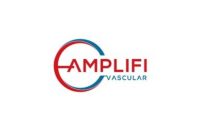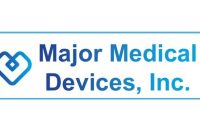Study is first to compare interventional therapy in combination with anticoagulation to anticoagulation alone for treatment of pulmonary embolism
MARLBOROUGH, Mass., Aug. 4, 2021 /PRNewswire/ — Boston Scientific Corporation (NYSE: BSX) has commenced enrollment in the HI-PEITHO clinical trial, a collaborative research study with the Pulmonary Embolism Response Team (PERT) Consortium and the University Medical Center of the Johannes Gutenberg University of Mainz comparing use of the EkoSonic™ Endovascular System (EKOS) in combination with anticoagulation to anticoagulation alone for the treatment of acute, intermediate-high-risk pulmonary embolism (PE).
Each year nearly one million patients in the U.S. and Europe are affected by PE, a blood clot causing a blockage in one or more pulmonary arteries within the lungs, representing the leading cause of in-hospital death in the United States.i,ii In intermediate-risk or high-risk cases of PE, the blockage may lead to a strain on the heart’s ability to pump blood through the lungs and can be fatal. The current standard of care for PE is anticoagulation, though there are disparate guidelines to direct safe and effective treatment of patients with intermediate-high-risk PE.
“This first-of-its-kind international randomized controlled trial is intended to address current gaps in clinical guidelines and underscores our support of the highest level of research that may enable physicians to make data-based clinical decisions when choosing the best therapy for their patients with PE,” said Michael R. Jaff, D.O., chief medical officer and vice president clinical affairs, technology and innovation, Peripheral Interventions, Boston Scientific.
The EKOS system uses ultrasound energy in combination with a thrombolytic drug to dissolve blood clots and restore blood flow in patients with PE and peripheral arterial occlusions. The ultrasound technology used by the EKOS system accelerates thrombolysis – the breakdown of the clot – minimizing the time it takes to treat a patient and lowering the necessary thrombolytic dose, which can result in optimized outcomes and a lower risk of bleeding.
“I am honored to be part of this study’s global leadership whose mission is to bring forth guidelines-informing data that will ensure physicians can feel confident in the most appropriate strategy for treating patients with intermediate-high-risk PE,” said Stavros Konstantinides M.D., Ph.D., FESC, FRCP (Glasg.), study co-lead principal investigator, professor and medical director, Center for Thrombosis and Hemostasis, University Medical Center of the Johannes Gutenberg University of Mainz, Germany.
The randomized HI-PEITHO trial will enroll up to 544 patients with confirmed acute, intermediate-high-risk PE at as many as 65 sites in the U.S. and Europe. The trial, which will follow patients for one year, will assess whether treatment with the EKOS system in combination with anticoagulation is associated with a significant reduction in adverse events compared to anticoagulation alone, within seven days of randomization. The composite primary endpoint is defined as PE-related mortality, cardiorespiratory decompensation or collapse and non-fatal symptomatic and objectively confirmed recurrence of PE.
“Optimal treatment of PE is still poorly understood and there is a need for a coordinated institutional approach to this complex, life-threatening problem,” said Kenneth Rosenfield, M.D., study co-lead principal investigator and section head, Vascular Medicine and Intervention, Division of Cardiology, Massachusetts General Hospital, Boston. “The lead investigators of the trial are pleased to collaborate with the PERT Consortium, which is committed to evidence-driven therapy and is proud to take part in the HI-PEITHO study, aiming to advance the care of patients with PE.”
To learn more about the HI-PEITHO clinical trial, please visit https://www.bostonscientific.com/hi-peitho.
About Boston Scientific
Boston Scientific transforms lives through innovative medical solutions that improve the health of patients around the world. As a global medical technology leader for more than 40 years, we advance science for life by providing a broad range of high performance solutions that address unmet patient needs and reduce the cost of healthcare. For more information, visit and connect on Twitter and Facebook.
Cautionary Statement Regarding Forward-Looking Statements
This press release contains forward-looking statements within the meaning of Section 27A of the Securities Act of 1933 and Section 21E of the Securities Exchange Act of 1934. Forward-looking statements may be identified by words like “anticipate,” “expect,” “project,” “believe,” “plan,” “estimate,” “intend” and similar words. These forward-looking statements are based on our beliefs, assumptions and estimates using information available to us at the time and are not intended to be guarantees of future events or performance. These forward-looking statements include, among other things, statements regarding our business plans, clinical trials, product launches and product performance and impact. If our underlying assumptions turn out to be incorrect, or if certain risks or uncertainties materialize, actual results could vary materially from the expectations and projections expressed or implied by our forward-looking statements. These factors, in some cases, have affected and in the future (together with other factors) could affect our ability to implement our business strategy and may cause actual results to differ materially from those contemplated by the statements expressed in this press release. As a result, readers are cautioned not to place undue reliance on any of our forward-looking statements.
Factors that may cause such differences include, among other things: future economic, competitive, reimbursement and regulatory conditions; new product introductions; demographic trends; intellectual property; litigation; financial market conditions; and future business decisions made by us and our competitors. All of these factors are difficult or impossible to predict accurately and many of them are beyond our control. For a further list and description of these and other important risks and uncertainties that may affect our future operations, see Part I, Item 1A – Risk Factors in our most recent Annual Report on Form 10-K filed with the Securities and Exchange Commission, which we may update in Part II, Item 1A – Risk Factors in Quarterly Reports on Form 10-Q we have filed or will file hereafter. We disclaim any intention or obligation to publicly update or revise any forward-looking statements to reflect any change in our expectations or in events, conditions or circumstances on which those expectations may be based, or that may affect the likelihood that actual results will differ from those contained in the forward-looking statements. This cautionary statement is applicable to all forward-looking statements contained in this document.
CONTACTS:
Karin Dalsin
Media Relations
(763) 494-1914
Karin.Dalsin@bsci.com
Lauren Tengler
Investor Relations
(508) 683-4479
BSXInvestorRelations@bsci.com
i Wood KE et al. Major pulmonary embolism: review of a pathophysiologic approach to the golden hour of hemodynamically significant pulmonary embolism. Chest 2002;121:877-905
ii Management strategies and determinants of outcome in acute major pulmonary embolism: results of a multicenter registry. Kasper et al., J Am Coll Cardiol, 1997; 30: 1165-1171
SOURCE Boston Scientific Corporation







